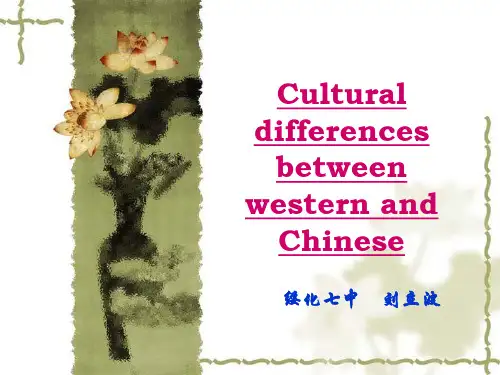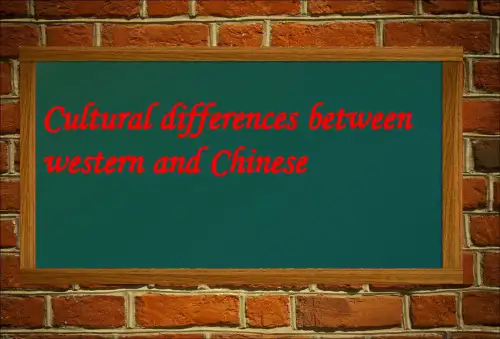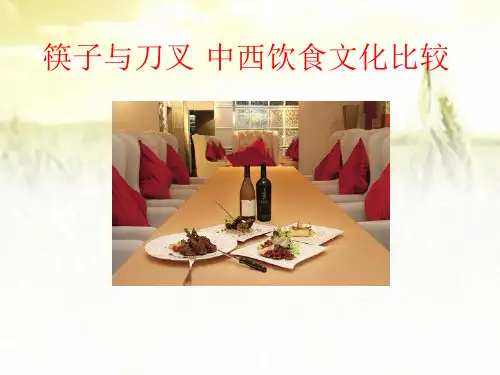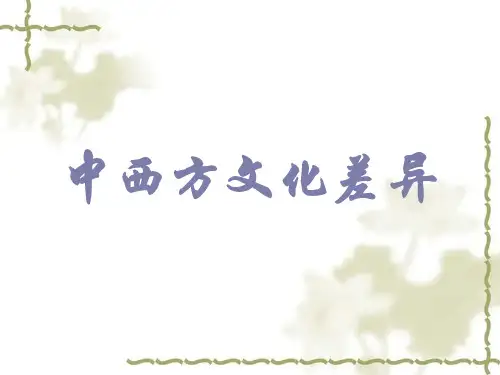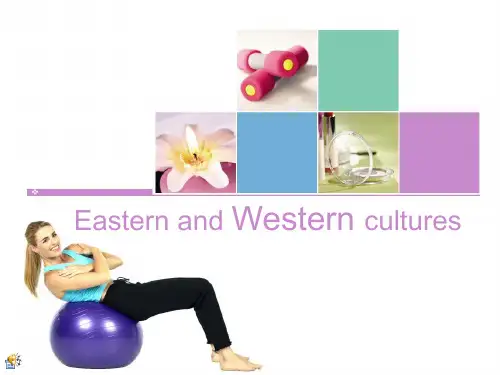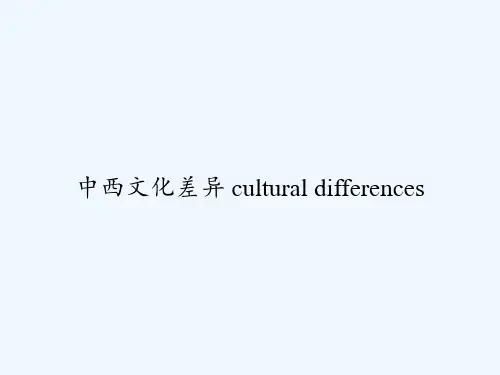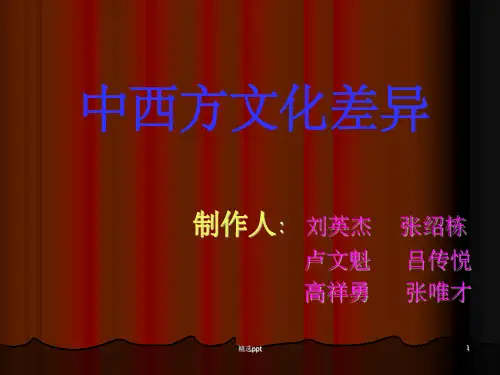- 1、下载文档前请自行甄别文档内容的完整性,平台不提供额外的编辑、内容补充、找答案等附加服务。
- 2、"仅部分预览"的文档,不可在线预览部分如存在完整性等问题,可反馈申请退款(可完整预览的文档不适用该条件!)。
- 3、如文档侵犯您的权益,请联系客服反馈,我们会尽快为您处理(人工客服工作时间:9:00-18:30)。
中西文化差异ppt
•
•Introductio n
As a part of culture, language is the carrier, the accumulation, and reflection of culture in the mean time. Language and the cultural information it contained show people the nation’s culture background. It can well be perceived by the comparative study of the Animal Signs’ cultural connotation in Chinese and English.
• •Therefore, the mouse now shares the image of bravery, smart, loveliness, such as Mickey Mouse in Mickey and Donald Duck, Jerry in Tom and Jerry, and Stuart Little.
•
pig-headed刚愎自用 to be a pig about something 贪婪 to make a pig of oneself 大吃大喝 to teach a pig to play on a flute 对牛弹琴
•
•牛 &Horse
•
ox is considered as hard-working animal to the Chinese. Phrases contained ox have positive associations, such as老黄牛,猛牛 ,壮牛. In China, people are willing to compare themselves to 牛, just as LuXun said “俯首甘为孺子牛”.
•
•
But to the westerners, associations with dragon are all negative. It is the personification of monster that has awful appearance. It is said that the dragon is a huge lizard which have wings and squamae, and it can breathe out fire. Dragon is the symbol of vileness in that it may do harm to the people by burning and deluging people’s houses as well as
•
Zhu Bajie, who is a famous pig image in Journey to the West puts these characteristics into full play. Also, Zhu Bajie is always used to derogate person who is eager to eat .
•
•
Dragon shares the image of authority and inviolability in Chinese culture. In feudal society, the emperors always declared themselves to be the sons of dragons. All the things they used were with the designs of dragons and were named with dragon。
•
•鼠 &mouse
•
•Mouse is the first animal in the Twelve Animal Signs.
•In China, there are many folks about how the mouse became the leader of the Twelve Animal Signs. The most popular folk is that the God held a running race and the one who first reached the finishing line would be the leader. On the way, the mouse persuaded the ox to let him on its back by tricks. When the ox was about to reach the finishing line, the mouse slid from the ox’s nose and he became the winner.
eating people and other animals.
•
•
•
•狗&dog
•
To most Chinese, dog is considered as an unpleasant animal that has derogatory connotation. No Chinese would like to be called a dog. So when to admire someone the expression you are a lucky dog should be changed into you are so lucky.
•
In westerners’ mind, the horse is a symbol of strength and stamina, which is just like牛 in Chinese. Therefore, in some cases, the word牛in Chinese are usually translated to horse in English.
•
Same animal words, different connotations in Chinese and English Cultures
Since Chinese and English focus on different aspects of the characteristics of the animal, the connotations of animal words in the two cultures are not always the same. In another words, sometimes the meanings are quite different.
•
Language reflects culture, and the similarity of language is determined by general character of culture. We Chinese people and westerners live in the same globe, and we must have, more or less, something in common, such as geography, attitudes towards natural phenomenon, even feelings towards some animals, so we have similar associations of some animals with the westerners.
老鼠过街,人人喊打
•When a rat runs across the street everybody cries, "kill it!"
•
In English, the word mouse doesn’t have so many negative meanings as the Chinese character 鼠does. At the very beginning, it was the symbol of timid and weakness, which has the same cultural connotation with that in Chinese. In modern cartoon films, mouse is the brave fighter to defeat the cat.
•
talk horse吹牛
horse power力大如牛
work like a horse像牛 一样踏实肯干
You can pull a horse to a river, but
you cannot make him drink.牛不喝Fra bibliotek强按头•
•From the folk, we can see how shrewd the mouse is in human beings’ mind. On the other hand, mouse lives in obscure corner to secretly eat people’s food. So the word mouse is always associated with derogatory sense, such as timid, suspicious, and narrow-minded.
•
Love me, love my dog. 爱屋及乌 Every dog has his day. 凡人皆有得意日 love me love my dog爱屋及乌 clever dog 聪明的人 like a dog with two tails 无比高兴 lucky dog 幸运儿 bull dog 硬汉子 top dog 优胜者 lucky dog 幸运儿
